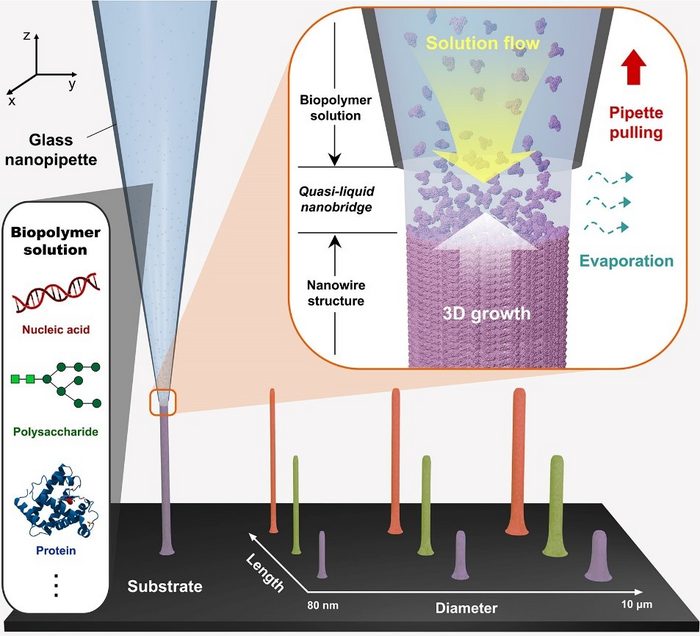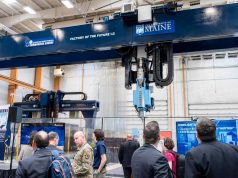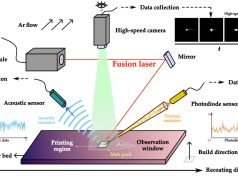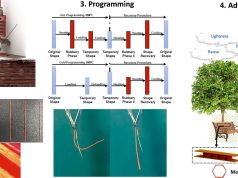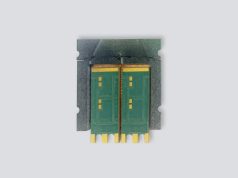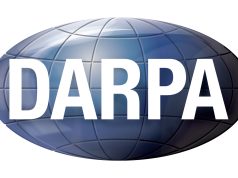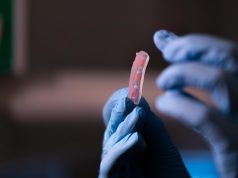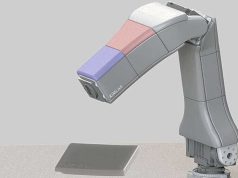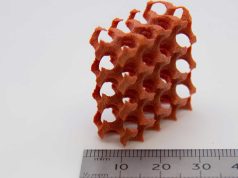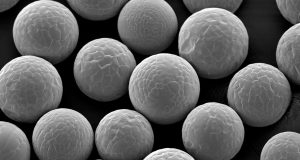3D bioprinting is a useful technique that ranges from reconstructive plastic surgery to the fabrication of artificial organs. However, many biopolymers, such as nucleic acids, polysaccharides and proteins, cannot be easily formed into the desired submicron or nanoscale 3D shape due to their rheological and structural properties.
A team of researchers at POSTECH led by Professor Seung Soo Oh, Professor Emeritus Jung Ho Je, Dr. Moon-Jung Yong, and graduate students Un Yang and Byunghwa Kang has now developed a breakthrough 3D printing technology that enables the precise patterning of various biopolymers.
The researchers have unveiled a 3D printing strategy in which a biopolymer-containing solution is sequentially entrapped, evaporated and solidified to obtain the folding structure and molecular function of the biopolymers. This allows 3D biopolymer architectures to be fabricated at submicron resolution. The printed biopolymers exhibit their desired functions, enabling pinpoint localization of spatiotemporal biofunctions.
The technique can be applied in various fields and has the advantage of not damaging or deforming the biopolymers. It is performed in a mild environment at room temperature and ambient air without additives.
The research results could have wide-ranging applications in the development of materials that can analyze and mimic microscale biological tissues. The technique can also be used to create artificial cells and tissues, as well as biochips.
“The significance of this research lies in proving for the first time the possibility of printing 100% functionally and structurally active biopolymers in ultrafine 3D structures,” emphasized Professor Seung Soo Oh, the POSTECH team leader.
Professor Emeritus Jung Ho Je commented, “It holds the potential to expand to the printing of various materials with diverse optical and electrical properties, including complex materials such as quantum dots and carbon nanotubes.”
Find out more about POSTECH at international.postech.ac.kr.
Subscribe to our Newsletter
3DPResso is a weekly newsletter that links to the most exciting global stories from the 3D printing and additive manufacturing industry.



